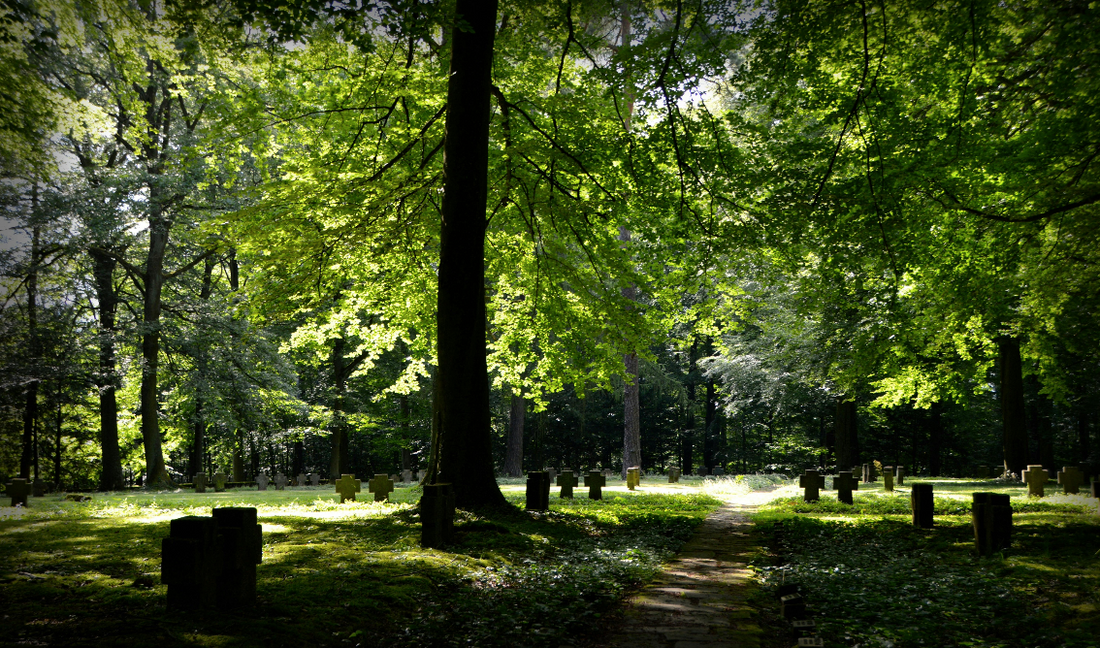
“Death is not the opposite of life, but a part of it.” – Haruki Murakami
As we progress into the future, our preferences about how we would like to be remembered and treated after death are evolving. Many are looking beyond traditional burial or cremation options and exploring more personalised, meaningful ways to honour their lives and legacies. Explore how five leading trends are shaping how people envision their end-of-life experiences.
1. Eco-Friendly Burials and Memorials
With growing environmental awareness, more people are opting for eco-friendly burials. These sustainable practices focus on minimising environmental impact by avoiding embalming fluids, using biodegradable coffins, and natural burials that return the body to the earth with minimal disruption. The “green burial” movement has gained considerable traction. A 2023 study revealed that over 50% of people aged 18-50 are open to eco-friendly burial options.
- Conservation cemeteries are growing in popularity, where burial fees contribute to land preservation.
- Biodegradable urns that grow into trees are a common choice for those who want to leave a living legacy.
- Natural burials skip traditional embalming processes, allowing bodies to decompose naturally.
2. Digital Memorialisation and Virtual Tributes
In the digital age, creating an online presence that lasts beyond our lifetime is becoming more prevalent. Digital memorials allow loved ones to create online tributes that include photos, videos, stories, and messages. This trend is particularly appealing to families spread across the globe or those who cannot visit a physical gravesite.
- Virtual reality experiences are being developed to allow people to "visit" a digital version of a gravesite.
- Memorial websites and social media pages offer a permanent digital space for memories.
- Interactive online memorials can feature audio messages, videos, and even virtual reality tributes.
3. Human Composting and Water Cremation
Innovative methods like human composting (natural organic reduction) and water cremation (alkaline hydrolysis) are emerging as alternatives to traditional cremation. These processes are designed to be more sustainable and environmentally friendly.
- Human composting turns the body into soil that can be used to nourish gardens or natural areas.
- Water cremation uses a water-based process to accelerate decomposition, resulting in a smaller carbon footprint.
- These methods are gaining acceptance, with a growing number of states and countries legalising them.
4. Personalised and Unique Funeral Services
Funeral services are moving away from standard ceremonies to more personalised celebrations of life. Instead of solemn affairs, many people now prefer funerals that reflect their personality, interests, and values.
- Themed funerals, where the event is styled around the deceased’s hobbies or passions.
- Incorporating multimedia, such as videos and playlists, to tell the story of a person's life.
- Unique send-offs, such as ashes being incorporated into fireworks, are gaining popularity.
5. Death Doulas and End-of-Life Coaches
The role of death doulas, also known as end-of-life coaches, is becoming more recognised as people seek a more holistic approach to dying. Death doulas support the dying and their families by providing emotional, spiritual, and practical guidance.
- They help plan personalised end-of-life experiences and memorial services.
- Offer support in navigating the emotional landscape of dying and grief.
- The interest in this service has grown, with 25% of millennials expressing the desire to have a death doula in a 2022 survey.
- In the UK, 75% of people over 65 have discussed their end-of-life preferences with their families, but less than 40% of adults aged 40-65 have done so.
- Only 33% of people in the US have a living will, highlighting the gap between what people want and the preparations they have made.
- 35% of respondents in a global survey stated they would prefer an eco-friendly burial over traditional methods.
Conclusion
As our attitudes towards death continue to evolve, it's clear that there is a shift towards more sustainable, personalised, and digitally enhanced memorialisation practices. These trends highlight a growing desire to control how we are remembered and to ensure that our final acts reflect our values, personalities, and life stories.
By staying informed and open to new ideas, we can ensure that our end-of-life choices truly resonate with who we are and the legacy we wish to leave behind.

